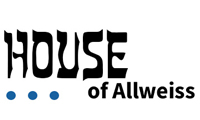I decided to reinvent the company; it was a turnaround situation now. I would restructure the company, and refocus our products. On the product side, I decided that multimedia would be a big market, we would concentrate our eight bit adapter business in that area. We would sell to the SCSI CD-ROM manufacturers and the system manufacturers that needed a low cost SCSI CD-ROM interface. I would cancel the TMC-950A, a performance and feature improvement on our TMC-950 chip started by Al. I felt the TMC-950, which had just gone into production in 1989 was enough to meet our eight bit needs. We had developed some good CD-ROM software early on, but it now languished. We would have our chip vendor do a “die shrink” of the TMC-950 in 1991 that would be called the 9C50 which was basically a cost reduction only.
I canceled the TMC-1800A chip which was meant to fix the problems with the TMC-1800 and instead turn the silicon for the new 18C50 chip. After talking to customers I found the main objections to the TMC-1800 based products were cost and some compatibility issues. The 18C50 chip would be a cost reduction while addressing compatibility issues and adding new SCSI-2 and Fast SCSI features. The 18C50 would support the 16 bit AT bus, the IBM Microchannel bus, and the EISA bus. The only SCSI adapters for Microchannel (MCA) were expensive IBM designs, and I felt that they would need a desktop solution soon for CD-ROM and Optical disk. So the new 18C50 chip would include the MCA interface and as a company we would focus sales efforts on IBM.
So the new strategy was to focus our product sales efforts on low cost SCSI devices such as CD-ROM, Optical Disk, Scanners and Printers. For the disk drive business we would now try to sell our 16 bit products, realizing that for many applications where the customer demanded Bus Master DMA we would not be able to accommodate them and that some had switched to Adaptec. Finally, we would concentrate effort on the IBM MCA market since no other company had a solution. There was risk in this last part of the strategy because other than IBM only a few companies were producing MCA PC’s, so we would have to become a vendor to IBM to achieve a big success. This turned out to be a key strategic decision for the company.
I had to let Terry Green go because sales were not high enough to pay for his position, but kept his International Sales Manager Mark Zadeh. I decided to take a sales trip to Japan and Asia that spring. I had a feeling that the CD-ROM business was going to take off, and while we had a great product for that market, our sales and marketing efforts had been lacking. In Japan we relied on a trading company named Tomen Electronics to represent us. At this time all CD-ROM’s were made in Japan, and the Japanese companies had tight rein on what their subsidiaries around the world did. It was critical that the Japanese either bundle our adapter, or had their subsidiaries do so.
